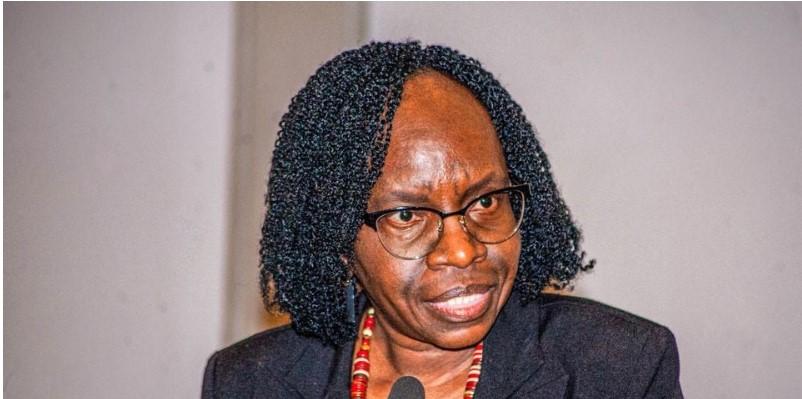Sh 880m Puzzle In Uhuru’s Private Varsity Scheme
The government could have lost close to Sh1 billion in a programme where students were placed in private universities and part of their tuition fees paid for by the State, an audit report shows.
The audit report shows the program started by the administration of President Uhuru Kenyatta was underfunded and the government owes private universities billions of shillings.
The Auditor-General Nancy Gathungu states in her report that there are glaring discrepancies between the budgeted amount and the funds released by the National Treasury and disbursements to the universities.
Further, the report notes that the program through which Sh15,762,573,515 was disbursed lacked legal backing.
Ms. Gathungu’s report questions the expenditure of over Sh883.3 million on students for periods exceeding the duration of their academic programs, students not placed by the Kenya Universities and Colleges Central Placement Service (Kuccps), students on deferred or long academic leave, already graduated students as well as duplicated disbursements.
The Auditor-General carried out the audit following a request by the National Assembly in March this year to establish whether the government got value for money.
It covered the period between when the program was started in 2016 up to June this year when it was stopped, with the introduction of a new funding model.
“The audit highlighted various irregularities and weaknesses in the management of capitation funds disbursed to private universities that could result in loss of public funds. These included non-compliance with the relevant provisions of the Public Finance Management Act, 2012, and the Universities Act, 2012,” the report reads.
“In addition, there are internal controls weaknesses including lack of proper authorisation and approvals of capitation disbursements to government-sponsored students in private universities.”
Ms Gathungu has recommended that the State Department of Higher Education should account for Sh162,365,484 indicated as having been disbursed to private universities but which was not received.
“Further, the Universities Fund (UF) board and the state department should reconcile their records and explain the excess
disbursements of Sh19,017,387,” the report reads.
It highlights a variance of Sh162,365,484 in the disbursement records from the Ministry of Education and receipts records from the universities.
The program was started in 2016 following a huge drop in students who qualified for university admission after reforms in the Kenya Certificate of Secondary Education (KCSE) examinations to curb cheating.
ALSO READ:
- Former Deputy President Rigathi Gachagua Reveals the Truth Behind His Impeachment
- Guatemalan and Salvadoran Troops Land for Haiti Mission
- Puzzle as Woman Is Found Dead in Mysterious Circumstances Close to Her Home
- Cross-Border Attack: Nigerian Gunmen Kill 5 Cameroonian Soldiers in Retaliation
- The Late KNCHR Chairperson Roseline Odede’s Illustrious Career, Awards & Legacy
The reduced number of qualifiers left private universities with few students as the government was to sponsor all who scored a mean grade of C+ and above.
Thirty-two private universities participated in the program in an arrangement where the government was to pay 80 percent of the cost of a program and the student to cater for the remaining 20 percent.
The cost of the programs was in the range of Sh144,000 and Sh504,000 per academic year for the arts and science-based programs, respectively.
“Review of the government funding to the government-sponsored students in private universities indicate amounts of Sh20,295 and Sh71,035 having been remitted for the arts and STEM-based degree programs leaving a significant funding gap,” notes the report.
The report recommends an engagement between the government and private universities to resolve the issue. It, however, does not indicate how much each university is owed.
The audit report which will be discussed by the National Assembly notes that over the period, 153,076 students were placed by Kuccps to private universities.
However, only 110,586 reported to the institutions, while 42,490 others did not. Mt Kenya University has received the highest number of students in the seven years (24,075).
Ms Gathungu observes that after the funds were released by the National Treasury, they were not transferred to the UF for onward transmission to the universities.
Instead, they were managed by the State Department for Higher Education, contrary to Section 53(3) of the Universities Act, 2012.
The special report reveals that Sh201.6 million was disbursed to 4,521 students who are not government-sponsored since they were not placed by the Kuccps. It recommends that the affected universities should refund the money.
“Some 9,489 students have been enrolled in the universities for periods exceeding the durations of academic programs. Funds amounting to Sh412.7 million had been disbursed on account of the students for the excessive period,” Ms Gathungu notes.
In addition, Sh53.6 million more was advanced for 1,116 students who had either deferred their studies or were on long academic leave. The audit shows that disbursements amounting to Sh35.2 million continued on account of 788 students who had already graduated from the universities.
“The universities involved should refund Sh17.8 million spent on students whose names were duplicated in the payment schedules. The UF should ensure that no students receive double allocations of funds in the future,” the auditor recommends.
She noted that there was poor record keeping at the Ministry of Education and recommends that the UF should devise strategies for assessing or evaluating the success of placements “with clear follow-up mechanisms on utilization of disbursed funds”.
In the new funding model, students placed by Kuccps in private universities cater for their tuition fee requirements but qualify for student loans from the Higher Education Loans Board.
Those placed in public universities qualify for government scholarships, HELB loans and also a bursary, depending on their level of need. The founder of Mt Kenya University Simon Gicharu welcomed the new funding model.
“Public and private universities will now have to be competitive and relevant for them to attract students. We all have to be innovative,” he told Gossipa2z.
Sh 880m Puzzle In Uhuru’s Private Varsity Scheme
